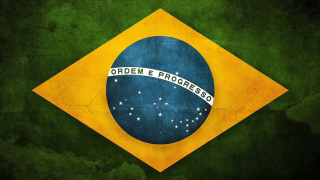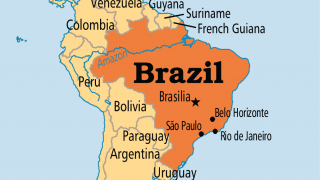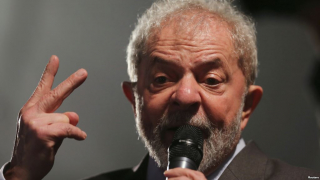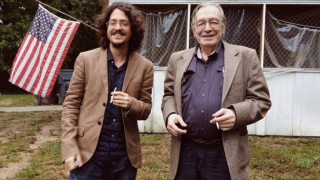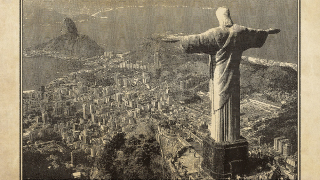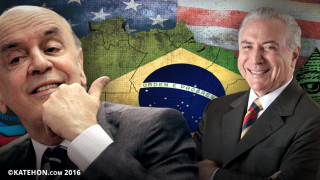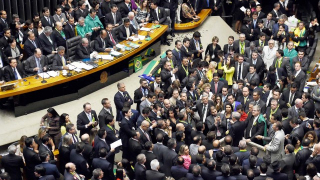Brazil: With both Bolsonaro and Haddad the sociability gap would become deeper
Interview with the Brazilian philosopher, director of the Center for Multipolarity Studies Flavia Virginia
- How can you describe the current political situation in Brazil? Can the next elections seriously change the state of things? Is it an ideological battle or something else? Who is the most predictable winner?
F.V.: We are in the middle of a terrible crisis. It has a lot to do with the world crisis, which is, actually, a change in human sociability, where crucial aspects such as spirituality and religion, moral and ethics, politics and economy, family and finally epistemics are being debased on behalf of a globally controlled behavior. The main factors leading entire populations to giving in to this control is fear and mistrust. And this is being achieved by things like rising waves of fabricated corruption and violence, unemployment, family disjunction, marketing religions, etc.
In Brazil, the same thing is ensuing and the cardinal arena for this is Politics. With the putsch of 2016 we learned that we went ten houses backwards in the political game —as usually occurs in any putsch — but it was not so clear then how aback we could go socially speaking. Families, friends and institutions have been torn apart for a difference of opinion as to which candidate should be our next president. The real problem, though, is a much deeper one. The Political has been abducted from our lives long time ago (again, with another putsch, that of 1964, when the simple gathering of groups or the possession of some books would have you arrested, tortured and killed). Therefore, all that is left to us in terms of politics is voting every two years. This, of course, although part of the democratic game, is note a synonym to Democracy. But Brazilians have been trained to understand it as enough.
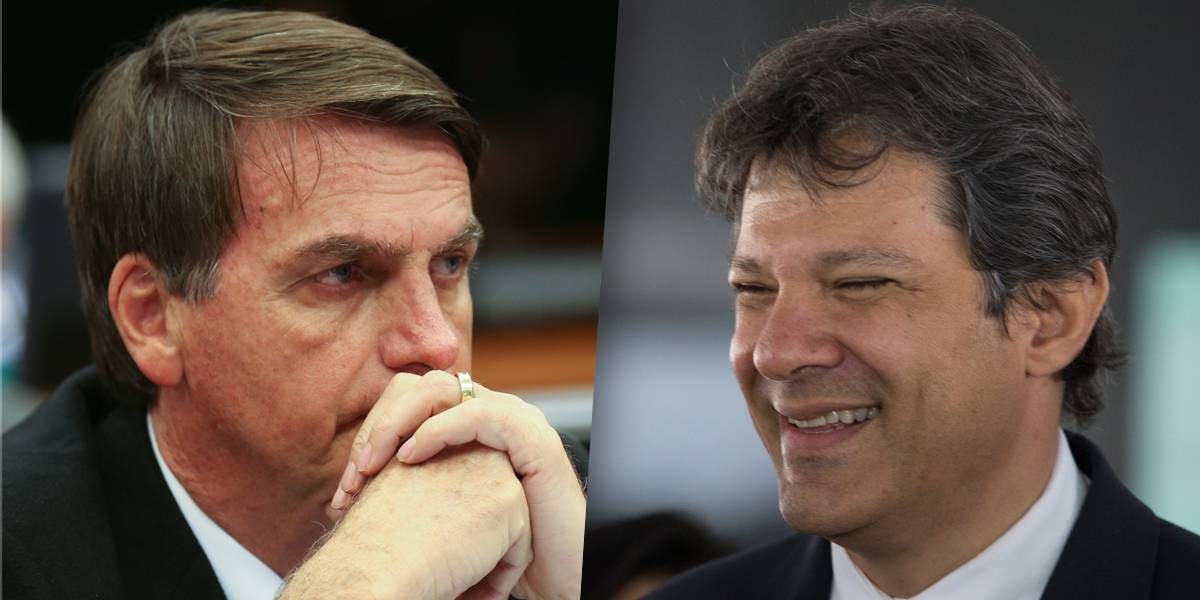
We have to bear in mind, though, who is the typical Brazilian, the narod: someone expecting a president able to strengthen:
· the State, so as to protect the meek and grant jobs, security and welfare,
· the family
· and religion.
And such president is also presumed to block the topics of the cosmoliberal agenda, defended forcefully by the liberal-leftists:
· abortion,
· the gay and transgender agendas,
· feminism,
· urban violence (backed up, among other things, by the human rights applied to the criminals in detriment of the common citizen)
· and corruption.
The candidate incarnating these immediate quests will tend to be the preferred one in the polls, regardless of howhe would do it or any other political issue outside the realm above, including Geopolitics and International Relations.
So, we are a country with no Politics—just a bunch of slogans and some public policies, and this is what has been quarreled to the point of social fracture by the majority of citizens today.
Nevertheless, the candidates do represent real political strands, despite peoples' ignorance of this fact. Unfortunately, all of them befall in the cosmoliberal axis. The difference between the many candidates is the degree of cosmoliberalism they represent, which will impact directly on the sovereignty of our already non-sovereign country (in the plain geopolitical sense of the word).
And, as usual in Brazil, anything could happen, so we still don't know who will actually win. We will most certainly have a second term and the debate now is concentrated on who will face Jair Bolsonaro then—Fernando Haddad or Ciro Gomes.
- Jair Bolsonaro. From outside he is viewed as a populist who surfs the wave similar to the one that brought Donald Trump to the White House and resulted in Europe in the rise of right and left wing populism. Is that appreciation true? Why is he supported and by whom?
F.V.: Jair Bolsonaro incarnates the figure of a hero who will come to save Brazil from its terrible loss of moral and conservative values and from its very strong commitment to liberal-leftist agendas in the last years.
This commitment has materialized because ex-president Lula’s party, PT, who was in power for twelve years, was not able to create a real political ground, instead focusing almost exclusively on public policies and base social movements (there were also good maneuvers in the International Relations field). Thus, although it is true that social mobilization was clearly felt in the lower strata, it is also true that, ideologically, PT, not acting as strongly as it should as an instrument of the Political, made way to all kinds of liberal-leftisms that go directly against the Deep Brazil.
Therefore, Jair Bolsonaro also represents the group of what we call entreguismo, that is, the act of delivering the country to the hands of the cosmoliberal world elites, which evidently is a betrayal against any people. With the putsch, the social enhancement fell apart and we ended up as easy preys to the putschers’ plan of taking power at all costs. Corruption and urban violence have escalated to unbearable rates in the last years — in a reinforcement of narratives like Bolsonaro’s — then all that many people want now is a person promising he will take things in his own hands, mend everything wrong and make them be as they should in the people's imaginary. He is a puppet.
Hence, initially surprising, but not so much so, he is supported by a very wide range of voters because they cannot make a political reading of our situation—only a social one, as explained.
-Can the next elections change the geopolitical course of the country?
F.V.: We could expect basically two programs, depending on the winner: either submission to the USA-NATO Atlanticist axis (Jair Bolsonaro’s politics, most probably Haddad’s as well, although not so strongly) or a possible reapproximation to the multipolar line of Geopolitics with, for example, the retaking of the BRICS and maybe some healthier relationship with Latin America (Ciro’s politics, maybe Haddad’s). This last option, though, would face serious difficulties and threats, due to the fact that it is extremely important to the Atlanticist domain in South America to keep Brazil under guard and constrained in its power, sovereignty and influence in the region.
- Can the forthcoming elections make society more unified or more fragmented?
F.V.: These two possibilities are at stake, in the present case. With both Bolsonaro and Haddad as winners — the main characters in this unprecedented polarization—the sociability gap would become yet deeper. Ciro Gomes, though, could may be bind things together and we could even aspire to grab the Political in our hands again within, say, the next generation or two.
But, you know, in Brazil we are never certain, let alone in these very, very dark days.
May God be with us!


